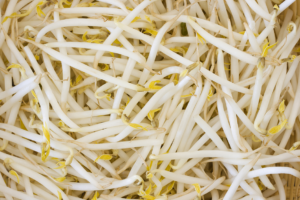Recent years have seen major food poisoning outbreaks linked to risky raw foods such as unpasteurized milk, raw eggs, bean/seed sprouts, frozen berries and lettuce. Each year an estimated 1 million Australians have to visit a doctor with food poisoning, 32,000 people end up in hospital and 86 people die.
Raw foods can get contaminated with bacteria and viruses in many ways. These include from food handlers’ unwashed hands, from the soil, compost or dirty irrigation water used to grow the food, from food producing animals, from dirty kitchen equipment and by contact with other contaminated food. Cooking the food usually kills any bacteria or viruses so there is more of a food poisoning risk from eating some raw foods.
You can reduce your raw food risk by following these simple tips:
- DON’T use any cracked eggs in raw eggs dishes such as egg nog, uncooked desserts such as mousses and tiramisu, hollandaise sauces, fresh mayonnaise, aioli, health shakes with added raw egg or steak tartar. Either discard the cracked eggs or save them for a dish like a cake that will be thoroughly cooked. Prepare any raw egg dish as close as possible to consuming and refrigerate at or below 5°C
- DON’T wash eggs from your backyard chooks as it spreads bacteria around your kitchen. Use a paper towel or brush to remove as much visible dirt as possible and wash your hands thoroughly afterwards. Once again it’s best not to use them in raw egg dishes.
- DON’T eat undercooked dishes including minced meat, such as in hamburgers and sausages, liver (including liver paté), stuffed or rolled roasts or poultry. Cook these foods all the way through to 75°C to kill any bacteria inside.
- DON’T drink unpasteurised milk as it will be contaminated with bacteria (and raw cow’s milk is illegal to sell). If you have your own goat or cow you can pasteurize your own milk by heating it to 75 °C in a double boiler for 2 minutes continuously stirring, then cool and refrigerate in a clean container.
- DON’T let juices from raw meat or poultry contaminate other foods that won’t be cooked like salads or desserts. Use separate chopping boards for raw meat and salad veggies, cover raw meat and poultry in the fridge.
However DO eat lots of raw fruit and vegetables, Australians aren’t eating their recommended 5 serves of veggies and 2 of fruit a day. Reduce your risk of food poisoning by washing your fruit and veggies under running water and dry with a paper towel just before eating – even if you are going to peel it so you don’t transfer bacteria to the inside of the food. You may need to scrub dirtier root veggies. There is no need to wash bagged fresh salads or cut vegetables if the label says it has been pre-washed but make sure you use them by the use by date.
Finally, don’t forget that some foods, such as raw eggs, unpasteurised dairy products, cold deli meats, soft cheeses, paté and salads that you haven’t prepared at home, need to be avoided entirely by some groups at risk of Listeria which can cause a fatal infection. These at risk groups include pregnant women, the elderly and people with poor immune systems.

